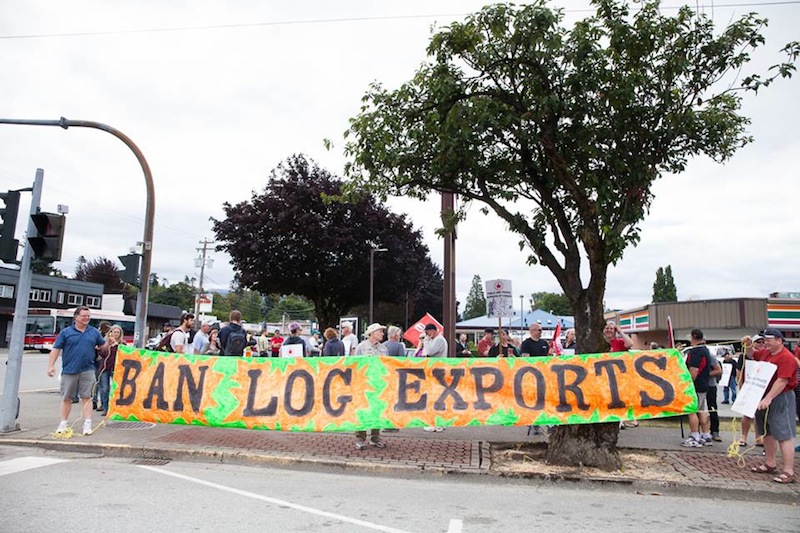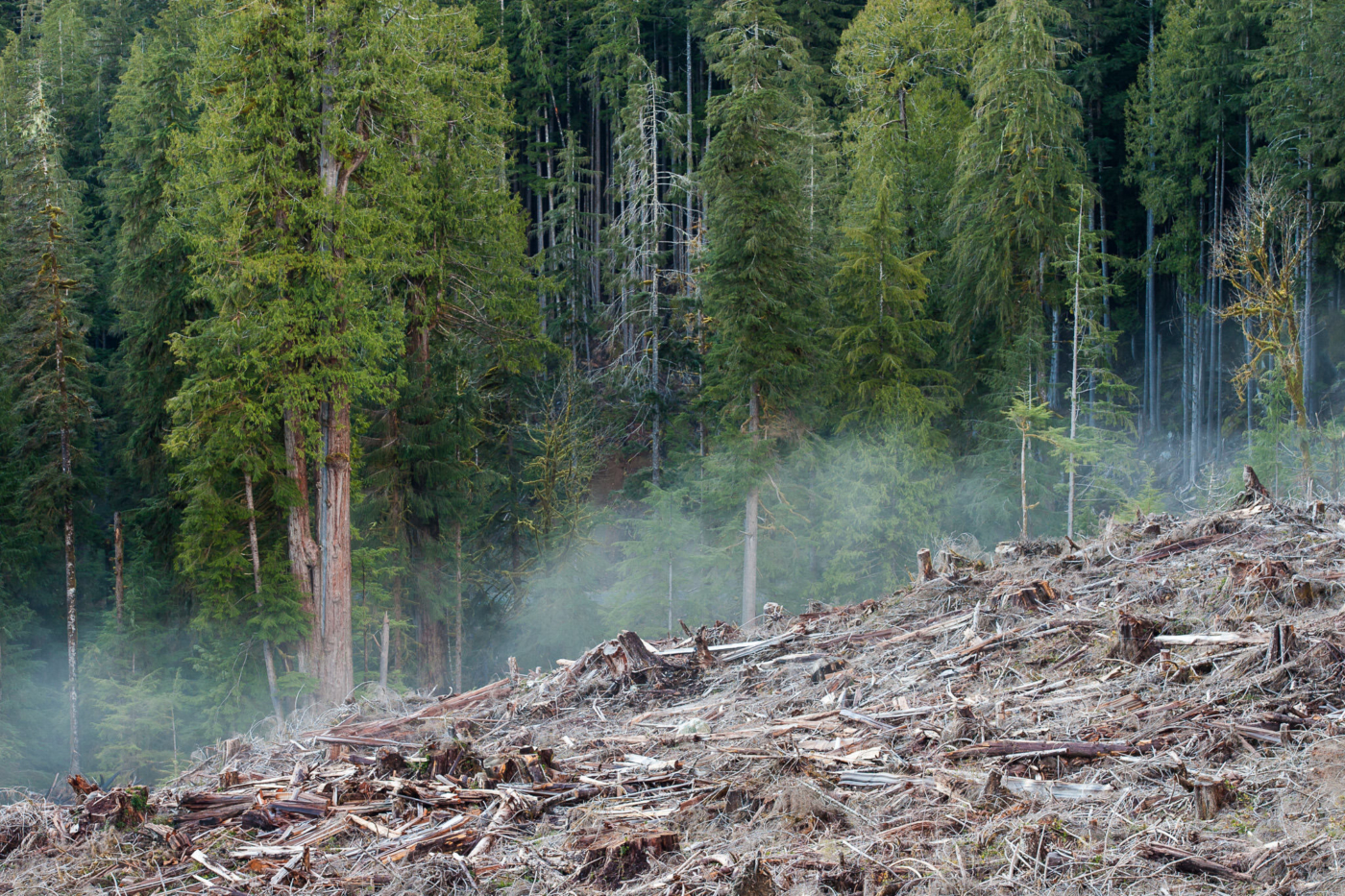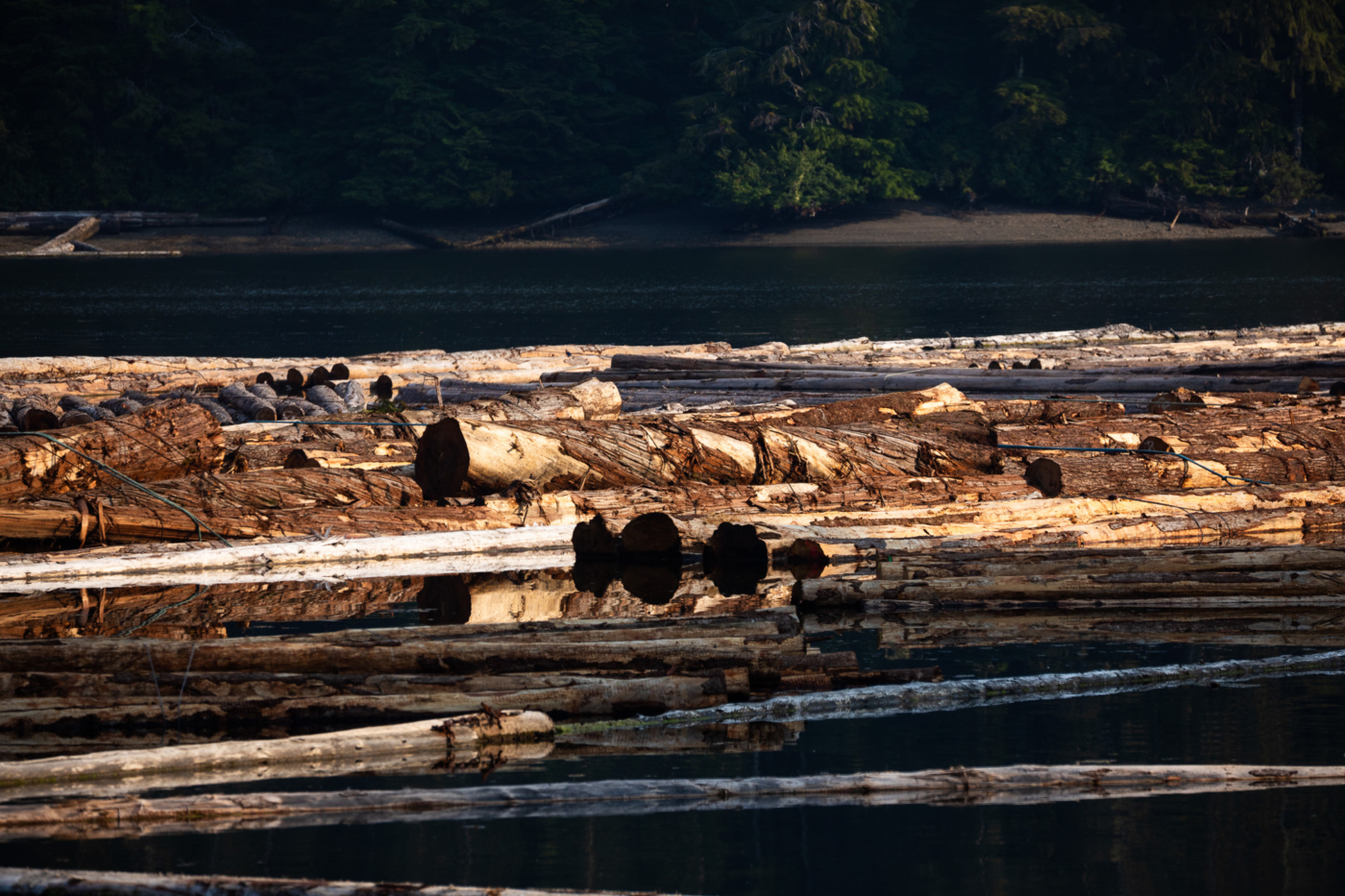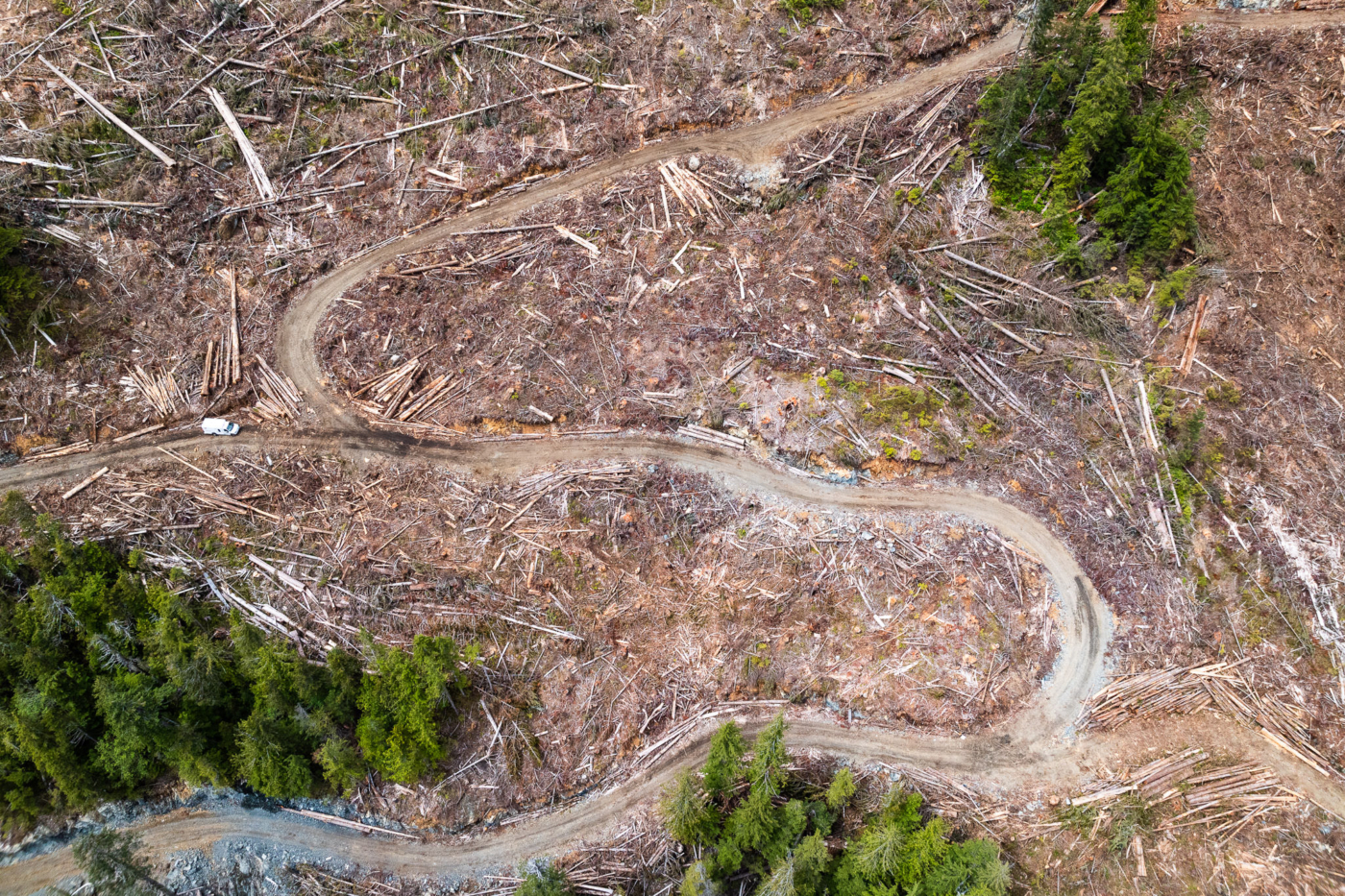 Aug 3 2016
Aug 3 2016What Do You Get When Forestry Workers, First Nations, Environmentalists and a Politician Meet Up At A 7-Eleven In Port Alberni?
Here's a new article by Alicia LaRue about the recent sustainable forestry rally, organized by the Pulp, Paper, and Woodworkers of Canada (PPWC) union, supported by the Ancient Forest Alliance, WCWC, and Unifor, calling for the protection of old-growth forests, an end to raw log exports, and regulations and incentives for a value-added, sustainable second-growth forest industry.
*****
A rally of people dumbfounded at the management of B.C.’s forestry industry…while the corporations are logging all the way to the bank!
As a recent resident to Port Alberni one thing that I can say is that the forestry industry is huge part of the fabric of the city…from the good old days of MacMillan Bloedel to a waterfront inlet almost completely dedicated to the forest industry. Most of the buildings you see while walking through the South Port and upper Third Avenue area offer a sense of the historical roots of Port Alberni. Buildings that were built on the backs of past generations brought to this community for the wood industry are now sitting dormant, swallowed by time with rust, graffiti, neglect and one can't help but wonder what the future is for this little town.
When receiving a Facebook invite to a local protest of raw log exports from Ken Wu (founder of the Ancient Forest Alliance), I was hesitant to accept the offer. I had no idea what to expect, plus I wondered if attending the protest would cause some to shun me in our small community built on logging.
I arrived expecting a lot of hippies (not that there is anything wrong with hippies), but was shocked to see dozens of middle aged white men!! (Not that there is anything wrong with middle aged white men). This is a segment of the population I would not expect to be protesting… and on top of it, protesting the logging industry. Most of the protesters (around 100) have been affected first-hand by the mismanagement of our natural resources. These protesters have lived through the evolution of crappy political decisions, big corporate greed, and dwindling local jobs. The second-growth trees are being shipped off to Asian markets faster than we can even breathe the air that they produce. With all these factors, these protesters were pissed!! And rightly so…
Marching down Johnson Street to Victoria Quay, cars driving by honked their horns with excitement and support. The issue of raw logs affects everyone in the area in some way or another. I think we can all agree that we (as Island folks) are all in some way passionate about our beautiful trees and the future of them. One man who worked in the industry mentioned to me that “If we cannot profit in some way off the trees, I would rather them stay in the ground then see them being shipped off!” We were all on ground zero. Marching past the Arlington Hotel (now the Blue Marlin Inn), it was like ghosts from the past Port Alberni marched with us in support.
The speakers, Arnold Bercov, President of Public and Private Workers of Canada, and Alberni-Pacific Rim MLA Scott Fraser, both spoke of the obvious profit of big corporations while rural areas suffer. Also, those Ken Wu (Ancient Forest Alliance) and Torrance Coste (Wilderness Committee) spoke of respect and unity with the logging industry. Of course, Ken and Torrance are inspirational, level-headed leaders who are passionate and speak on behalf of what many people are experiencing. They are anything but crazy or radical. The First Nation speaker Brad Young (Executive Director of the National Aboriginal Forestry Association) mentioned how the tides have turned. First Nations in the past were bombarded with a system imposed to take advantage of them. Currently, that system is turning and taking advantage of all people. Young mentioned that First Nations know how it feels and are excited about taking back what is ours to manage it the “right way”.
Something that I personally gathered from this protest is that we all want a better future: one of community, jobs and sustainability for future generations. Our natural resource industry is what makes us Canadian. Our resources are valuable and to see them being profited by a select few is completely unacceptable!! This is a key issue in the upcoming provincial election. We need to all make it a high priority to give the power back to the people and not just business, industry and corporations. I hope protests like this will keep happening in Port Alberni and will grow in the future. Let the voices be heard from those who have been through the highs and lows of poor forestry management to take back our beautiful home. Please, get involved however you can!! Write to your local government. Lets take our Canada back!!
Here are some more key facts around raw log exports (curtsy Ken Wu, AFA)
– About 6 to 7 million cubic metres a year are exported from B.C.'s coastal forests, which is about 60% of the coastal second-growth that is cut.
– This is worth thousands of potential milling jobs that are lost when those logs are exported to China, Korea, Japan, and the USA
– If we are to create a sustainable forest industry we need to save the last old-growth forests (of which about 75% of the original, productive old-growth forests have been logged, including more than 90% of the valley bottoms) and manufacture the second-growth logs that are harvested here to increase the employment-to-harvest ratio. Instead, we are going the other way, exporting more raw logs and having fewer jobs.
– The main reason for the decline of coastal forestry employment over the past 20 years is because they have logged the biggest, best old-growth trees in the valley bottoms and at the lower elevations, resulting in diminishing returns as the remaining old-growth trees get smaller, more expensive to reach, and with lower returns. As the second-growth forests have matured, the B.C. government has deregulated much of the industry and provided no incentives or regulations to facilitate a value-added second-growth forest industry.
– The reason that there is a surplus of logs which can be exported, compared to the milling capacity on the coast is because the B.C. government allowed vast numbers of old-growth mills to shut down by removing the local milling requirement in 2003. The old-growth forests have been depleted instead of mandating that those mills retool to handle second-growth logs as the second-growth forests mature.







